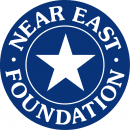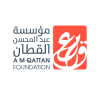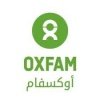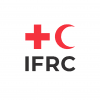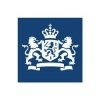Financial and Management Training for Women Associations
Request for Proposals
“Short-Term contract to conduct Financial and Management Training for Women Associations
Terms of Reference (ToR)
GROW’s Logic Model
Funded by the Government of Canada, GROW is 4-year project that aims to enhance economic empowerment and increase prosperity for low-income women and youth in the West Bank. The project responds to the development needs and challenges facing women and female youth entrepreneurs in the West Bank, to move beyond their essential but largely unrecognized roles, ultimately contributing to their increased voice and agency in both social and economic spheres, while enhancing the overall productivity and competitiveness of the agricultural sector.
GROW’s Logic Model is based on a vision stipulated in the following Theory of Change (ToC) where project activities fall under two strategic areas:
- Access/Income Side: all activities that aim to enhance women’s competitiveness and readiness to engage in value chains and sectors in an effective and making the business case for market actors to change behaviour and practices to be more inclusive of women in a sustainable manner.
- Agency Side: all activities that aim to address enabling environment barriers (formal and informal rules) to women’s increased voice, choice, and decision-making powers within their households, enterprises, and communities.
Micro-franchises offer a way to increase the business startup success and reduce risk -- especially for entrepreneurs who are inexperienced or risk adverse. They increase the likelihood of success by creating a support structure for business coaching, facilitating economies of scale (procurement, training), and building linkages among entrepreneurs and communities. The micro franchise model involves developing a network of small businesses and linking them together through a shared business plan that includes comprehensive guidelines for: Technology selection, Business management, Staffing and customer service, Quality control, Branding and marketing, and Reporting and accounting systems.
Working with women’s associations, NEF has designed and implemented a micro-franchised network of women-managed school canteens to make nutritious snacks available to primary school students. In collaboration with the Palestinian Authority Ministry of Education (for quality control and licensing), the micro franchise has enabled existing canteens to improve profitability and enabled the expansion of the canteen network to additional women owners and schools. In Nablus, NEF worked with five women’s associations and the Directorate of Education-Nablus to establish 20 school canteens. The women’s associations selected women to work in the canteens; for most, this is the primary source of income for their families.
General Context for the Training Need:
In the West Bank, regional barriers to movement and access restrict Palestinian’s mobility and limit access to jobs, markets, and capital. In this environment women are increasingly called upon to support their families financially. But social, economic, and legal barriers hinder their economic participation. Palestinian women are thus burdened with the “double-oppression” of patriarchal societal norms and occupation (UNFPA/Norway 2017). Though they often have similar or more education than Palestinian men, Palestinian women earn a fraction of men’s income and are far more likely to be unemployed (HDR 2016).
Entrepreneurship can play an important role in development and poverty alleviation, along with job creation, economic growth, and improved social conditions for women and marginalized groups. And women’s entrepreneurship can have profound and far reaching effects, as women invest more of their income into their children and families compared to men (UNSDSN 2013).
Women in the West Bank possess the desire to start and expand businesses. Yet, despite this demand and the positive contributions that women’s entrepreneurship can bring, women manage fewer than one in twenty SMEs in the West Bank and Gaza and own fewer than one in ten companies. Most women-owned businesses that do exist are not formally registered. Women’s prospects are often limited due to narrow conceptions of women’s enterprise activities that are associated with the relatively few sectors of entrepreneurial work in which women have traditionally engaged and, more broadly, with the general gender segregation of economic sectors (NEF 2017).
Women face critical challenges to entrepreneurship in four key areas: discrimination and negative social norms in their homes and communities; lack of access to opportunities to build business skills, knowledge, and networks; limited opportunities to access capital for their businesses; and limited access to new markets for their products and services. (NEF 2017). There is a significant need for accessible business development and facilitation services to provide more tailored support to women entrepreneurs. Training and support must take into account the key challenges to women’s entrepreneurship, along with practical constraints such as time burdens, mobility, and gender-related risks.
To be successful, it is critical to ensure that women’s cooperative associations have a solid foundation for sustainable, fair and transparent management of school canteen micro franchises. Following a needs assessment of each of 4 targeted women’s associations, NEF will provide association capacity building training to 40 beneficiaries (3-day workshop, 10 women per association) in four training sessions (10 women each).
Objectives:
Enhanced business skills and managerial capacity of women cooperatives to enable women successfully manage the school’s canteens as a profitable business activity. The training will cover topics that will raise the women associations’ managerial and financial capacities and will lead them to manage the micro franchise business successfully.
Target Beneficiaries and Targeted Governorate:
The trainer will train 40 women members in the associations as 10 per association on the mentioned training topics below.
The target area is Nablus governorate
Training Topics:
Prior to the training a rapid needs assessment will be conducted for each association in order to identify the training needs to improve women associations financial and managerial capacities. This assessment should be conducted prior the training, additional training topics will be added to the training topics depending on the needs of each association, training topical are the following but not limited to:
- Manage the associations’ financial system and more specific the school canteens Microfranchise business.
- Record keeping for business financial transactions.
- Leadership skills and negotiations/ communications.
- Marketing skills.
- Other topics that may identified in the need’s assessment.
Methodology and Responsibilities:
The consultant / Trainer is expected to design and implement the following training stages:
Stage One:
Conduct the training needs assessment for each women association to identify what skills are missed and what topics that can be added. A brief report of findings for each association should be submitted and discussed with NEF prior the training. Training topics and materials will be finalized and submitted to NEF prior the training accordingly.
Stage Two:
Prepare training materials and a pre/ post test for the trainees to be submitted for approval one week before the training.
Stage Three:
Conduct a customized training session for each women association as for 10 women by association.
Stage Four:
- Post test for the trainees – submit a list of the pre and post test results as an annex
- Training final Report.
Expected Deliverables
The consultant / Trainer will have the following specific outputs:
- Provide 15 hours training for each women association.
- Prepare the training materials, modules, presentations and tools and submit them within 5 days before training.
- Prepare pre and post tests for the trainees.
- Submit the evaluation forms and the Training Final report for the project manager 2 weeks after the end of the training.
- Final Report
Timeframe:
- All deliverables will be developed, published and shared widely from beginning of September 1st to the 20th of September 2019.
- Training time:
Time for each session: 5 hours*3 days =15 hours per workshop
15 hors *4 workshops = Total 60 training hours
Reporting:
The consultant / Trainer required will work closely with NEF to ensure all developed materials are approved by NEF designated representative prior to publishing. The consultant / Trainer will receive primary technical direction from NEF GROW Project Manager.
Qualifications:
- Availability to Start at the first week of September 2019.
- Minimum of 5 years of experience in Business Development for Women and Youth cooperatives and associations in the West Bank.
- Proven experience in Business Development trainings.
- CV of the trainer who will implement the assignment and examples of at least 10 previous similar projects or capacity building projects for cooperatives and associations school canteen.
- Ability to provide the final deliverables by mid of September 2019.
Payment Terms
The final payment shall be made after complete delivery of the services and acceptance of work and comply with performance evaluation.
Evaluation Criteria:
NEF will award the assignments to the consultant/ Trainer who technical offer will be most responsive to requests technical requirement; the final evaluation will be based on both technical and financial offers provided for: 1) Relevant experience for similar assignment with list of references, 2) Methodology and work plan.
Submission of Application
For more inquiries contact us in written email at [email protected] and by replying to the invitation email you will receive from this email, no inquiries will be taken over the phone.
Interested Trainers / Consultants should submit technical proposal and financial offer no later than August 10, 2019, 4:00 pm by email to: [email protected].
Proposal should include the following:
- Objectives understanding of the scope of work
- CV of the consultant / trainer including list of similar works
- Technical offer including a preliminary causal approach, design, methodology, and Timeframe for implementing the assignment.
- Detailed budget on a separate sheet
- All docs are requested in English language.
- The financial offer must provide the hour rate for the training
We thank all applicants, however only the successful applicants will be contacted; female trainers are highly encouraged to apply.




